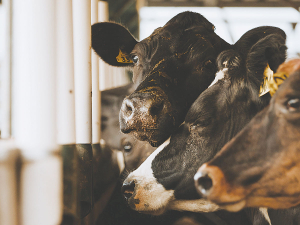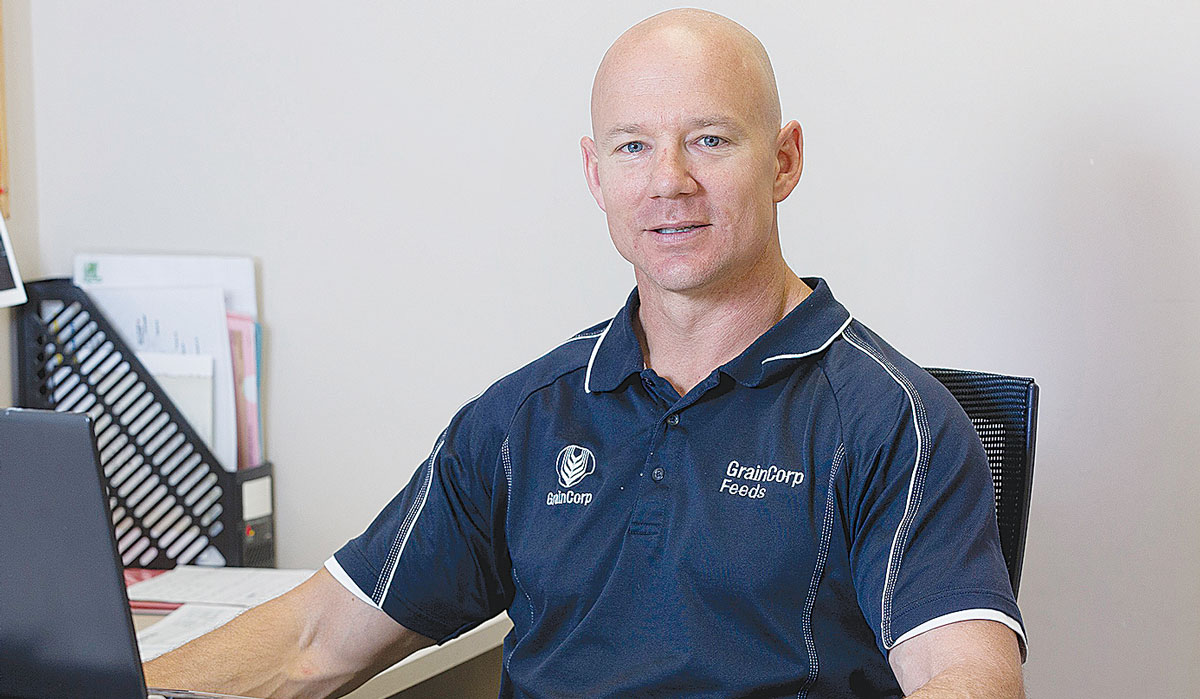Green but not much grass!
Dairy farmers in the lower North Island are working on protecting next season, according to Federated Farmers dairy chair Richard McIntyre, who farms just north of the Horowhenua township of Levin.
 Demand for quality, cost-effective protein-rich supplements continue to soar according to one feed importer.
Demand for quality, cost-effective protein-rich supplements continue to soar according to one feed importer.
A deficit in pasture protein levels last summer, combined with a good payout, has seen dairy farmer demand for quality, cost-effective protein-rich supplements soar. according to a feed importer.
“Protein levels in pasture typically decline during summer months, so supplementing a cow’s diet with a quality protein source can provide significant animal health and economic benefits in terms of lifting milk production and maintaining body condition,” says GrainCorp Feeds general manager Daniel Calcinai.
Recent pasture samples from across the North Island have confirmed that protein levels have been low, which has driven uptake of all protein-dense supplements across the board.
“In particular, we’ve noticed a trend towards farmers adding canola meal to their feeding regime. Since we started offering it to farmers in October last year, interest has far exceeded our expectations,” Calcinai says.
“Farmers are really starting to understand the benefits canola meal can provide, particularly the high levels of both crude and bypass protein, its ME and its unique amino acid profile, which is ideally suited to lactating dairy cows.
“It’s also non-GM so it can used on farms where non-GM feeds are required, and trials¹ have proven its ability to increase milk production.”
Calcinai says canola meal being used across a number of feeding systems.
From bulk on a feed pad to blended with other proteins and fed in bins, or added to in-shed customised blends, farmers are tailoring its use to help meet the nutrient levels required to achieve production targets.
Huntly farmers Phil and Sara Bryan have this season been incorporating canola meal into the blends their herds consume every day, either from feed bins or in-shed feeders.
The Bryan’s run two farms at Orini near Huntly, where they live with their three children. The lease block milks 150 cows. It is run by a farm manager and overseen by Phil and Sara. On the couple’s home farm, they 50/50 sharemilk 250 cows.
Average production across both herds has reached 500 kgMS per season. Phil says good feed planning means they have managed to protect their business from seasonal challenges.
 |
|---|
|
Daniel Calcinai, GrainCorp |
“We run a really simple operation at both farms and we have been impressed with how well canola meal has worked for us. We’ve been using it for five years on and off. You can buy in a lot and introduce it to your herd slowly. It’s also really easy to blend it with other products you’re using.”
Phil mixes his canola meal with palm kernel expeller (PKE), tapioca or pellets he is feeding his herd, depending on how grass growth is looking on both farms.
Phil says canola meal has been an economical addition to his feeding regime at a time when feed costs are rising on the back of high commodity prices.
“In the summer months it gets drier, but we have found the canola keeps the cows ticking along and maintaining their production, so it’s definitely worth the investment. Based on our experience, I think it helps to reduce heat stress too, which is not only good for milk production, but also for the health of our herd.”
Keeping Costs, Availability in Check
Due to global supply and demand, farmers are facing sky-rocketing costs from feed to fertiliser.
Compared to other high protein feeds, Daniel Calcinai says the price of canola meal has not lifted to the same extent.
“Canola meal on one of the lowest cost protein meals, on a cost per unit of protein basis.
“At the same time, it provides more benefits from the higher levels of bypass protein and favourable amino acid profile.”
Calcinai says that sourcing canola meal from Australia means global events, such as Covid and the war in the Ukraine, haven’t had a serious impact on the availability of the product.
Agriculture and Forestry Minister Todd McClay is encouraging farmers and growers to stay up to date with weather warnings and seek support should they need it.
The closure of SH2 Waioweka Gorge could result in significant delays and additional costs for freight customers around the Upper North Island, says Transporting New Zealand.
OPINION: The year has started positively for New Zealand dairy farmers and things are likely to get better.
Ministry for Primary Industries (MPI) Director General Ray Smith believes there is potential for an increase in dairy farming in New Zealand.
New Zealand's new Special Agricultural Trade Envoy, Horowhenua dairy farmer, company director and former Minister of Agriculture, Nathan Guy says the Free Trade Agreement (FTA) with India is a good deal for the country.
New figures show dairy farmers are not only holding on to their international workforce, but are also supporting those staff to step into higher-skilled roles on farm.
OPINION: There will be no cows at Europe's largest agricultural show in Paris this year for the first time ever…
OPINION: Canterbury grows most of the country's wheat, barley and oat crops. But persistently low wheat prices, coupled with a…